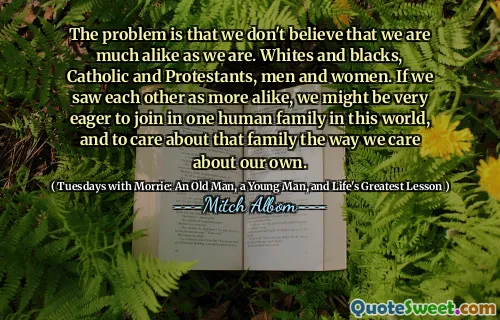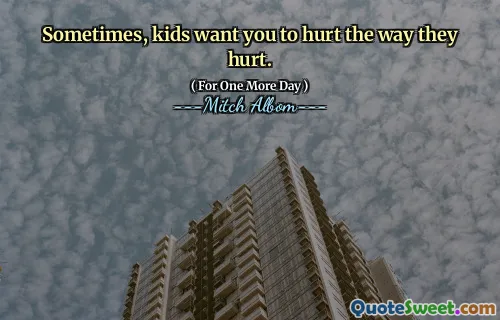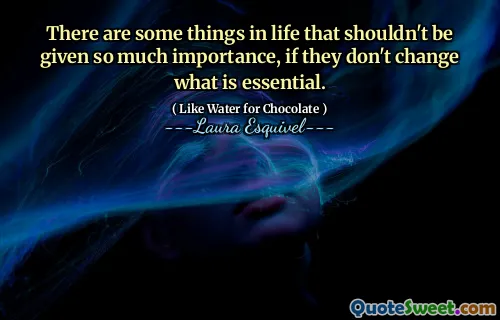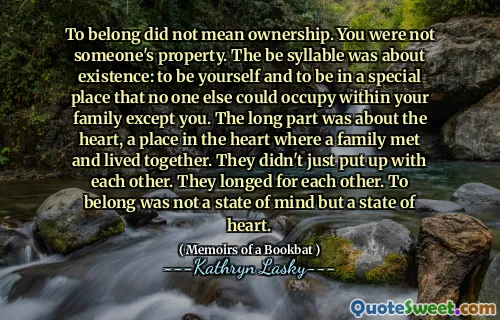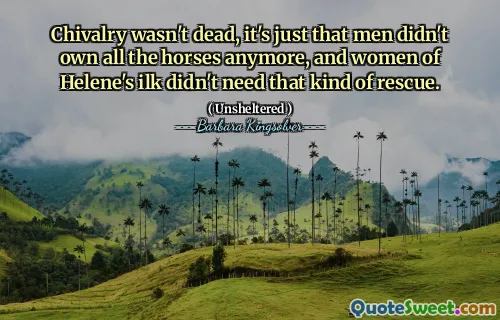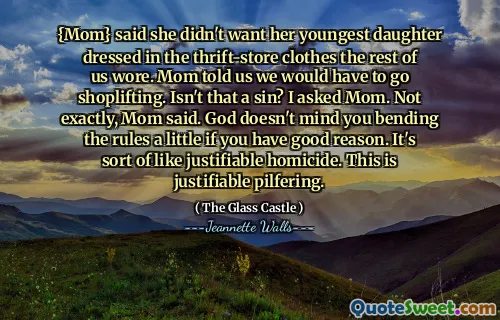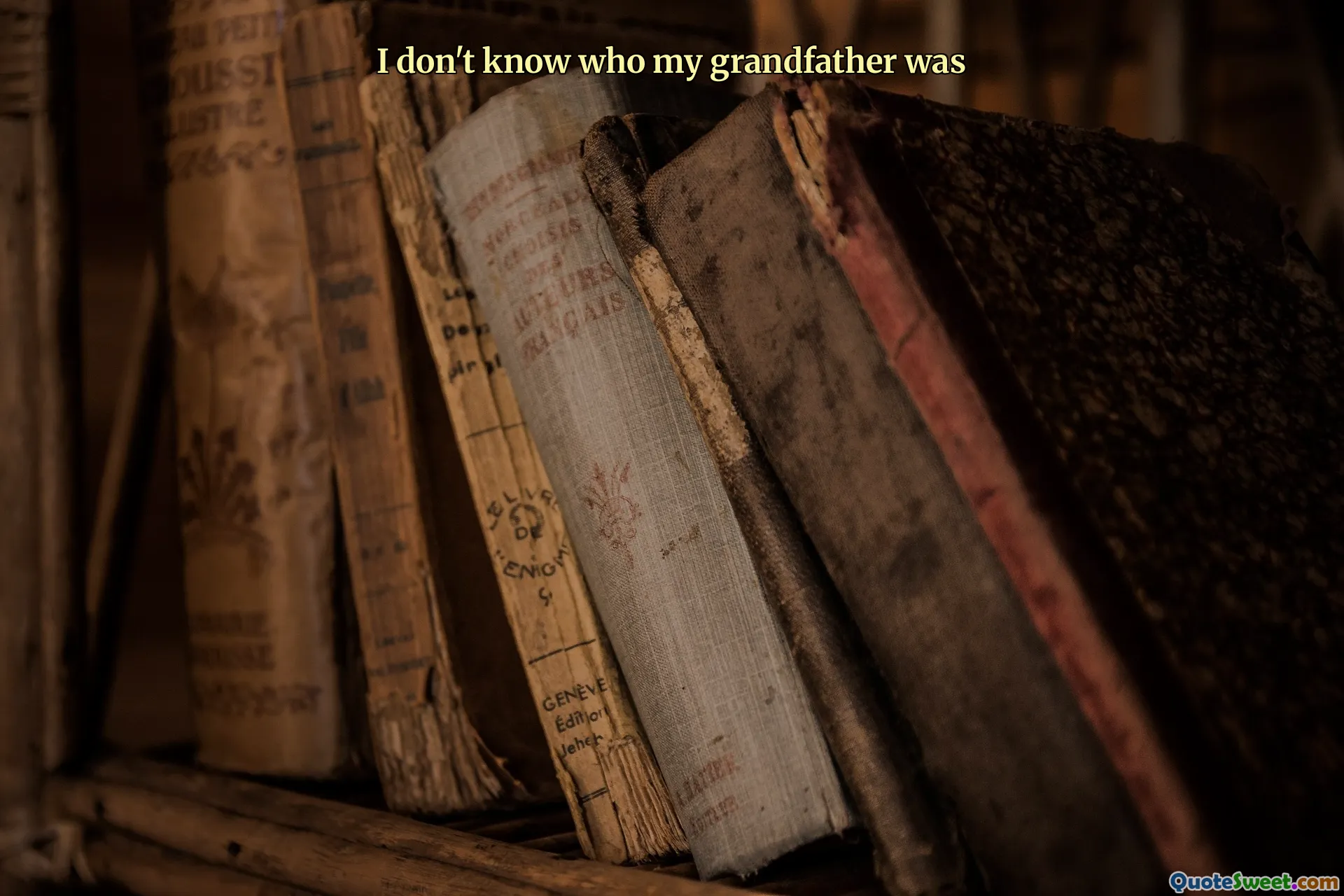
I don't know who my grandfather was
This quote reflects a profound sense of disconnection or uncertainty about one's ancestry, heritage, and identity. The inability to know who one's grandfather was can symbolize a broader feeling of missing links in personal history, which might stem from numerous circumstances such as family estrangement, loss, or historical upheavals. It prompts us to consider how much of our identity is built upon our roots and whether knowing our ancestors influences our sense of self. On a deeper level, this uncertainty might evoke feelings of loneliness or a search for belonging, urging individuals to explore or reconstruct their histories.
Moreover, the quote touches upon the importance of lineage, traditions, and stories passed through generations. When those stories are lost or inaccessible, it can create an identity void, making one question their origins and their place within a lineage. It might also reflect societal or historical issues that have resulted in shredding or erasing personal histories—war, migration, or systemic upheaval often disconnect families and obscure genealogies.
Yet, such uncertainty also opens avenues for self-definition beyond ancestral lineage. It encourages the exploration of personal values, experiences, and community connections to forge a sense of identity independent of historical knowledge. This perspective highlights resilience and adaptability, emphasizing that understanding oneself evolves not solely based on ancestral details but through one's actions, choices, and relationships.
Ultimately, this quote encapsulates a complex human experience—one of questioning, searching, and perhaps a quest for meaning. It underscores the importance of history while also recognizing the capacity of individuals to define themselves regardless of what they may lack in their ancestral record.






